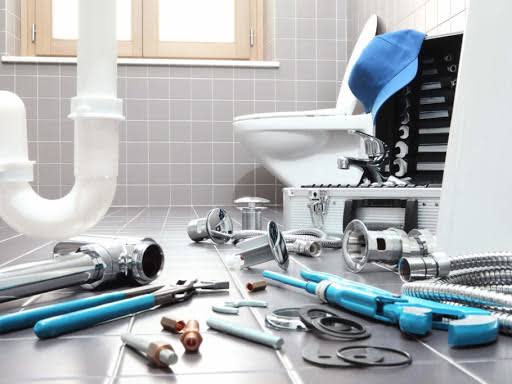Plumbing is an essential part of any home, but it can also be a source of hazards if not properly maintained. To ensure the safety of your family and the longevity of your plumbing system, it is important to take the necessary precautions and follow some basic safety tips.

- Know the location of your main water shut-off valve. In case of a leak or burst pipe, it is important to know where the main water shut-off valve is located so that you can turn off the water supply to your home. This will prevent further damage and potential flooding.
- Use caution when using chemicals to unclog drains. Many chemical drain cleaners can be extremely corrosive and can cause burns or other injuries if not used properly. Always follow the instructions on the product label and wear gloves and safety goggles to protect yourself.
- Be mindful of water temperature. Always check the water temperature before getting into the shower or bath to avoid scalding. To prevent scalding, install anti-scald devices on your faucets and showerheads.
- Use caution when working with natural gas. Natural gas is a highly flammable substance and should be handled with care. If you smell gas in your home, evacuate immediately and call the gas company. Never try to find the source of the leak or turn off the gas yourself.
- Keep children and pets away from toilets and other plumbing fixtures. Children and pets can easily fall into toilets and other fixtures, causing injury or drowning. Always keep the bathroom door closed and use childproof locks on toilet seats to prevent accidents.
- Don’t flush inappropriate items down the toilet. Only toilet paper and waste should be flushed down the toilet. Flushing other items such as wipes, sanitary products, and cooking grease can cause clogs and damage to your plumbing system.
- Regularly inspect and maintain your plumbing system. Regularly inspecting and maintaining your plumbing system can help prevent leaks and other problems from occurring. This includes checking for leaks, corrosion, and other signs of wear and tear.
- Know the signs of a water leak. Leaks can cause significant damage if not caught early. Keep an eye out for signs of a water leak such as water spots on the ceiling, mold, or a sudden increase in your water bill. If you suspect a leak, contact a plumber right away.
- Avoid DIY plumbing repairs. While it may be tempting to try and fix a plumbing problem yourself, it is often best to leave it to the professionals. Not only can DIY repairs cause more damage, but they can also be dangerous if not done properly.
- Know the signs of a frozen pipe. Cold temperatures can cause pipes to freeze, which can lead to bursting. Keep an eye out for signs of a frozen pipe such as a decrease in water flow or a change in water temperature. If you suspect a frozen pipe, contact a plumber right away.
Conclusion
Plumbing is an important part of any home, but it can also be a source of hazards if not properly maintained. By following these basic safety tips, you can keep your family safe and your plumbing system in good working order. Remember to know the location of your main water shut-off valve, use caution when using chemicals to unclog drains, be mindful of water temperature, use caution when working with natural gas, keep children and pets away from toilets and other fixtures, don’t flush inappropriate items, regularly inspect and maintain your plumbing system, know the signs of a water leak, avoid DIY plumbing repairs, and know the signs of a frozen pipe. If you suspect any problems with your plumbing, contact a professional plumber right away.



